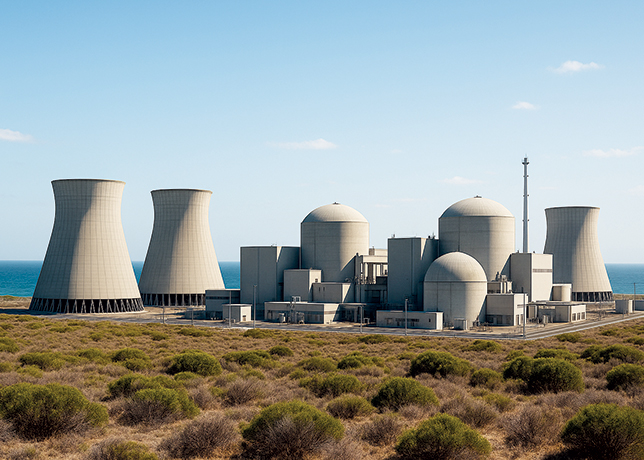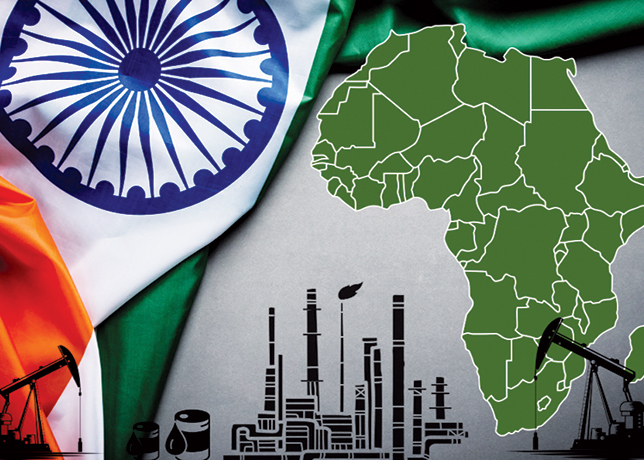
Ghana to develop petroleum hub
GHANA is developing West Africa's first integrated petroleum hub to enhance regional fuel security and reduce petroleum costs.
The hub is being developed in three phases between 2024 and 2036, with the first phase involving a 300,000-barrel-per-day refinery, a 90,000-bpd petrochemical plant, storage tanks, and marine port infrastructure.
The CEO of the Petroleum Hub Development Corporation, Dr Toni Aubynn, emphasised the importance of local investors in developing these industries.
Ghana's Tema Oil Refinery is already modernising to improve efficiency and productivity.
The country is also investing in infrastructure to boost capacity and enhance its inter-depot pipeline networks.
Ghana is prioritising local content and human capital development to unlock greater value for the local population.
Both the government and private companies are working to strengthen Ghana's workforce capacity and drive collaboration across the African continent to end energy poverty.
Explorco to drill in Voltaian basin
GHANA'S Explorco, the exploration division of the Ghana National Petroleum Corporation (GNPC), is set to drill its first exploration well in the Voltaian basin in Q1 2026.
The company is conducting research to support exploration and is inviting partners to help unlock the region.
The country's infrastructure-driven exploration strategy is expected to attract diverse investments from exploration and production firms.
The country is open for business, with vast unlicensed blocks offshore available through direct negotiations and partnership or farm-in opportunities. The African Energy Chamber (AEC) is urging stakeholders to believe in Ghana's potential and drive investment into the country.
To support upstream investment, Ghana has been enhancing its regulatory and fiscal environments. The government's main priority is to increase production at the active Jubilee and TEN fields, with 640 million barrels in the Jubilee and TEN fields and 1.2 trillion cubic feet of gas in place.
Germany invests in Africa
GERMANY is investing €4 billion ($4 billion) in Africa's energy sector by 2030, focusing on green energy projects and hydrogen and gas partnerships through the EU's Global Gateway initiative.
This investment aims to improve private sector involvement and infrastructure development, demonstrating Germany's commitment to sustainable development and economic growth.
In South Africa, Germany committed R5.2 billion to support the country's energy transition and deepen bilateral cooperation.
The EU also announced €4.7 billion investment in South Africa to support green energy initiatives and vaccine production.
Germany and the African Development Bank have announced joint initiatives to accelerate energy access and private sector growth across Africa.
German companies are optimistic about their prospects in South Africa, with 64 per cent expecting rising revenues and 44 per cent planning to invest within the next three years.
Boost to Namibia's energy SMEs
NIGERIAN investment firm Moneda Invest has signed a Memorandum of Understanding (MoU) with FNB Namibia and private equity firm Ino Capital Investments to support and scale local small- and medium-sized enterprises (SMEs) in Namibia's rapidly growing oil, gas, and energy industries.
The African Energy Chamber endorses this partnership, viewing it as a prime example of how African institutions and investors must lead the charge in fostering inclusive economic growth across the continent.
The MoU formalises the collaboration between the parties and establishes the Local Content Accelerator program, an inclusive platform designed to empower Namibian SMEs, suppliers, and contractors to fully participate in the energy value chain. Ejike Egbuagu, CEO of Moneda Invest, has played a key role in realising this vision, having been a key contributor to the development of local businesses in the energy sector since its partnership with Namibia at African Energy Week (AEW) 2024.
The MoU outlines a strategic roadmap for unlocking financing and operational support for SMEs across the energy value chain, from contractors to service providers to logistics firms.











































































